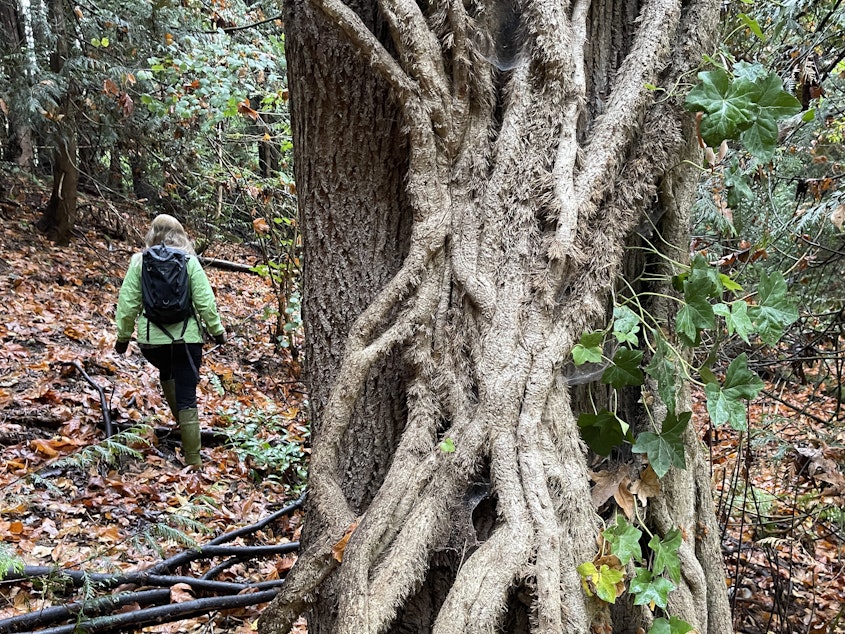Why Washington state aims to ban English ivy

It’s not a war on Christmas.
But two botanical symbols of the holiday — holly and ivy — face increasing controls in Washington due to the ecological havoc they can wreak when they escape into the wild.
The Washington State Department of Agriculture is proposing to ban the sale or transport of English ivy and its cousin, Atlantic ivy, by adding the plants to the state’s list of quarantined species.
The proposal originated in petitions from groups concerned about the impacts of invasive species and has been embraced by the state agency.
RELATED: Have a Holly Noxious Christmas? State board eyes un-jolly label for invasive greenery
Sponsored
“English ivy is killing away our tree canopy, and it's reducing biodiversity,” said Michael Feerer, head of the Whatcom Million Trees Project in Bellingham. “It's so aggressive and dominant.”
Annie Lennox performs “The Holly and the Ivy,” a traditional English Christmas carol since at least the early 18th century, in 2014.
Another state agency, the Washington Noxious Weed Control Board, listed three cultivated varieties of English ivy and one of Atlantic ivy as “Class C noxious weeds” in 2002. That designation carries no restrictions on growing or selling a plant. However, it does make it easier for landowners seeking help to combat a noxious weed and allows individual counties to ban it.
“Even if just a few nurseries are still selling it, that continues to grow the problem,” Feerer said.
Oregon banned the sale of English ivy in 2010, the only state to do so.
Feerer’s group has manually liberated about 1,700 trees from being engulfed by the aggressive vines and has talked a few Bellingham-area nurseries into no longer carrying English ivy. He said many others still sell it.
Sponsored
RELATED: This Ivy League wages hand-to-leaf combat against an English strangler
Agriculture officials are proposing to add 19 species to the state’s quarantine list of prohibited plants.
Plants proposed for state quarantine range from herb-robert — a forest-invading geranium sometimes called ‘stinky Bob’ because of its strong odor — to puncturevine, a European weed of eastern Washington drylands that can pierce tires and injure any person or animal unlucky enough to step on it.
None of the proposals have attracted anywhere near the interest that ivy has.
“We have received a lot of feedback,” virtually all of it in favor of an ivy ban, said Scott Brooks with the Department of Agriculture.
Sponsored
The agency is currently analyzing what impacts a ban would have on small businesses such as nurseries.
“There are a number of species that could easily replace ivy that are not invasive, so I think the overall impact should be minimal,” Brooks said.
Meanwhile, the Noxious Weed Control Board is looking at labeling English holly a Class C noxious weed.
A vote on that proposal in November was postponed until March due to opposition from the state’s eight holly farmers, who grow most of the English holly sold in the United States.




